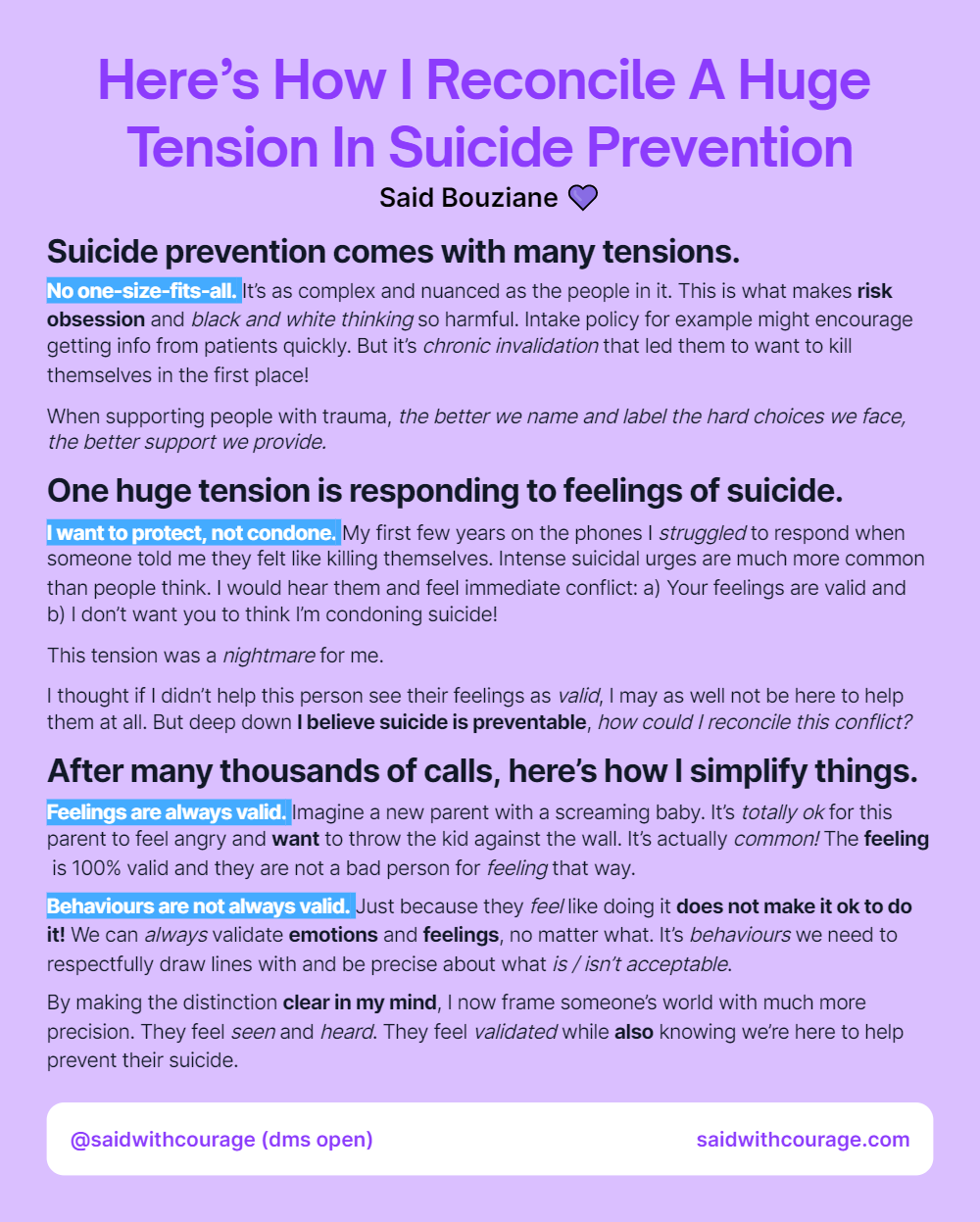Suicide prevention comes with many tensions.
No one-size-fits-all. It’s as complex and nuanced as the people in it. This is what makes risk obsession and black and white thinking so harmful. Intake policy for example might encourage getting info from patients quickly. But it’s chronic invalidation that led them to want to kill themselves in the first place!
When supporting people with trauma, the better we name and label the hard choices we face, the better support we provide.
One huge tension is responding to feelings of suicide.
I want to protect, not condone. My first few years on the phones I struggled to respond when someone told me they felt like killing themselves. Intense suicidal urges are much more common than people think. I would hear them and feel immediate conflict: a) Your feelings are valid and b) I don’t want you to think I’m condoning suicide!
This tension was a nightmare for me.
I thought if I didn’t help this person see their feelings as valid, I may as well not be here to help them at all. But deep down I believe suicide is preventable, how could I reconcile this conflict?
After many thousands of calls, here’s how I simplify things.
Feelings are always valid. Imagine a new parent with a screaming baby. It’s totally ok for this parent to feel angry and want to throw the kid against the wall. It’s actually common! The feeling is 100% valid and they are not a bad person for feeling that way.
Behaviours are not always valid. Just because they feel like doing it does not make it ok to do it! We can always validate emotions and feelings, no matter what. It’s behaviours we need to respectfully draw lines with and be precise about what is / isn’t acceptable.
By making the distinction clear in my mind, I now frame someone’s world with much more precision. They feel seen and heard. They feel validated while also knowing we’re here to help prevent their suicide.

